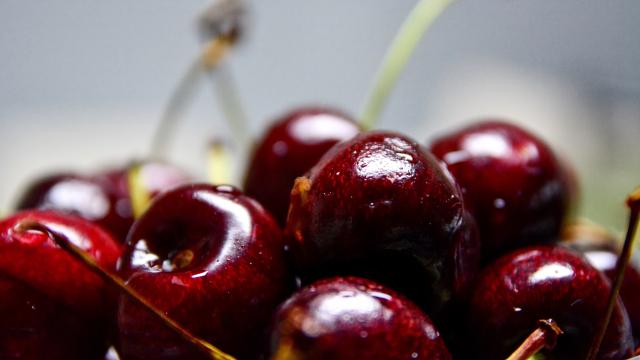What’s so special about superfoods, anyway? Even as the term fades slightly from marketing copy, we all still pay attention to specific foods that we’ve heard are better for us than the rest. Red wine. Goji berries. Kale.
In truth, what sets these foods apart has more to do with marketing dollars than their effects on our health. As Marion Nestle explains at the Atlantic, food industry marketing is responsible for the whole concept of one healthy food being better, in some magical intrinsic way, than others.
She traces the idea back to scientific research, promoted by the companies or growers’ associations that benefit from sales of a given food. “Wild” Maine blueberries have a higher antioxidant content than the highbush varieties that are more common in supermarkets, so the Maine Wild Blueberry Commission seized on that fact and promoted it with, Nestle reports, fully half of their marketing dollars from 1997 to 2000.
In truth, antioxidants aren’t so special, and they’re found in plenty of fruits.
Sometimes a company embraces research that’s already been done, like when Barilla sent out press releases for a pasta-related study that they did not fund. Other times, they offer free food or (every scientist’s kryptonite) free money for research on their product. Ocean Spray spends millions to uncover any inkling of a health benefit that might be connected to cranberries.
“This kind of research is designed to produce results implying that people who eat this one food will be healthier and can forget about everything else in their diets,” Nestle writes.
And that’s the problem: not that fruit has antioxidants”fine, whatever”but it takes the emphasis off the eating patterns that will have the biggest impact on your diet, and instead gets you thinking about buying specific products that make somebody money.
For example, we should all eat more fruits and vegetables. Not only is that a boring-sounding recommendation, it takes some planning.
Maybe your favourite lunch places don’t offer many veggie-heavy options. But let’s say you were too busy to pack a lunch, and now you’re at a sandwich place that offers a green tea (superfood!) latte, and a salad that’s too small to fill you up but it has a kale (superfood!) base, and a bunch of sugary yogurts ” sugar isn’t great, but hey they’ve got live active cultures (probiotics!), and one of them has pomegranate (superfood!) and acai (superduperfood!) purée mixed in. Now you feel like you’re eating healthy, right?
Even though the “super” foods were only there in smidgen quantities and your meal, in total, is skewed toward the sugary and unsatisfying.
Superfoods exist to make you feel better about the not-so-healthy food you choose, and to get you to buy one product over another. The people who make that acai yogurt are very happy with that situation. And as a result, you’ve lost track of your own goals, which probably weren’t to buy the trendiest fruits around, but to eat fruits and veggies and protein in the context of an overall healthy diet. You fell for it. We all did.

Comments
One response to “PSA: ‘Superfoods’ Are Big Fat Lie”
There seems to be a lot of “superfoods” that are being overlooked because of these hyped ones. Lots of leafy greens are really good for you and a lot cheaper than kale. And to be honest a bunch of them taste nicer too, which makes for a double bonus. You can buy something cheaper and enjoy eating it.
https://www.sbs.com.au/food/article/2018/08/01/are-you-sure-you-know-what-superfoods-actually-are
https://www.healthline.com/nutrition/true-superfoods